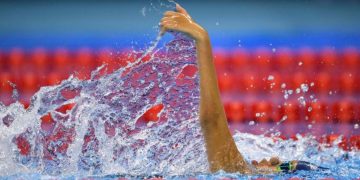Fill Me In
Eight Australian sports federations have issued guidelines aimed at encouraging the participation of transgender athletes.
Tennis Australia, Rugby Australia, and national federations for Australian Rules football, hockey, netball, water polo, Touch Football, and university sports issued guidelines governing inclusion at the grassroots and community level, while Netball Australia and the Australian Football League (AFL) issued guidelines for the elite level.
World-first initiative
“This is a world first to see so many national sporting organisations in Australia coming together to collectively show their support for a particular part of our community,” Beau Newell, National Program Manager of Pride in Sport Australia said at the launch of the guidelines.
The initiative is designed to break down stigma faced by trans and gender-diverse people, where many have found it difficult to find a balance between fairness and inclusion. The initiative was spearheaded by ACON, a health NGO advocating LGBTQ+ rights.
“While many trans people across Australia are members of very inclusive sports clubs, many also report that joining a club is an intimidating and frightening experience,” said Teddy Cook, ACON’s manager of trans and gender equity.
“The commitment from these sports provides much needed guidance to the many clubs working hard to be the open and inclusive sport they want to be for all athletes, including those who are trans.”
Divisive decision
Not all are supportive of the participation of trans athletes in sports, however.
Women’s sports advocates have argued that the naturally acquired physical benefits of a transgender woman who has gone through male puberty provide an unfair advantage in competition.
However, transgender advocates say inclusiveness should be the overriding factor. Preventing participation in women’s sports increases stigma and the discrimination they face.
“We know that trans athletes can be targeted on the unfounded basis that we affirm our gender to seek a competitive advantage in sport, but this is untrue and incredibly damaging to all,” said Cook.
What are the guidelines so far?
Rugby Australia requires trans athletes to have a medical specialist complete a consent form that specifies that their “physical development, skill level, and experience are appropriate” for the full-contact sport.
Cricket Australia’s gender diversity policy only requires a nomination of gender identity for athletes at community level.
Tennis Australia discourages officials from questioning athletes about their transitioning or requesting medical examinations.
Several other Australian federations for soccer, golf, swimming, and athletics are also committed to emulating the other sports by producing their own inclusion frameworks.
Under fire for not doing enough
Australian sports have been criticised in the past by transgender activists for not doing enough to include trans athletes.
The AFL was heavily criticised for its handling of trans athlete Hannah Mouncey, who represented Australia in men’s handball before transitioning. Mouncey played women’s football at the provincial level but the AFL did not allow her to enter the 2017 draft for professional women. She withdrew her nomination for the draft the following year, complaining of poor treatment from the league.
Starting small for international inclusions
Australia setting up guidelines for the inclusion of trans athletes could mean the inclusion of trans athletes at an international level.
In July, World Rugby, the international governing body for the sport, prepared draft guidelines on a new transgender policy.
The guidelines state bans on trans women and non-binary people assigned male at birth from competing in women’s rugby. The argument made by World Rugby was that “trans women pose a safety risk to cisgender women players”, reports The Conversation.
The policy brought on harsh criticisms from 84 academics in sports and public health from around the world, who published a letter condemning the trans ban.
Rugby players – recreational to elite levels – also spoke out in opposition. A worldwide petition by trans athlete Grace McKenzie against the proposal has more than 18,000 signatures. McKenzie, who would be directly affected by the proposed ban noted that “[the ban] is a politically-motivated action that’s happening at the highest levels of the game and does not reflect the makeup of the grassroots community in rugby.”
The backlash has supporters from international rugby unions as well. Rugby Canada was the first to denounce the new policy on 3 September, and on 25 September, USA Rugby publicly opposed the ban.














